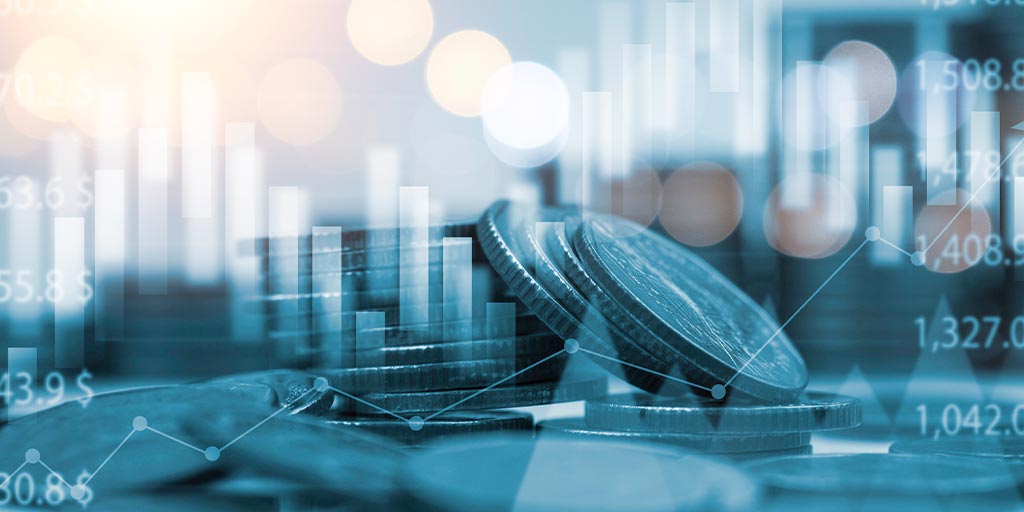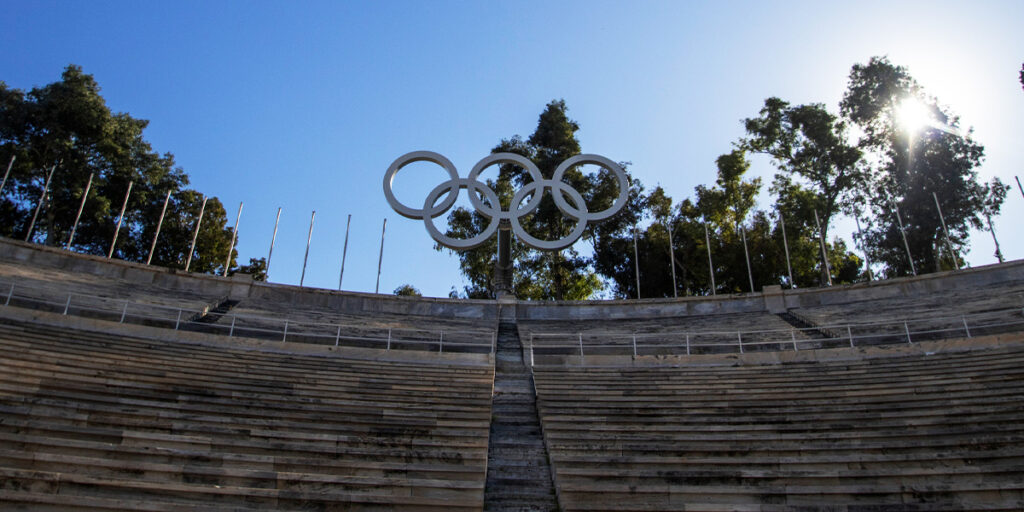If you followed the Market this week, you no doubt felt the turbulence. There’s some serious stuff going on beneath the surface. The Market is in complete recalibration mode as the reopening of America continues. Inflationary pressures continue to surface, which tends to hurt Tech but help Financials, Industrials and Commodities. That’s why the Dow has been leading while the NASDAQ lags. This is the opposite Market from last year. Fast-growing, innovative and disruptive companies saw their stocks surge in 2020. The more mature, Boring Blue Chips lagged. That trend has been turned upside down in 2021.
There are a number of reasons for that. First, Growth stocks entered the year overbought and way overheated. There was quite a bit of euphoria built up in what’s referred to as “risk assets.” They were more than due for a correction. It’s always a matter of when. You never know. What triggered it this time? The easiest explanation; Inflation. It’s been creeping up for weeks. It exploded in April, according to the Federal Government. The prices we pay jumped in April more than any month in over a decade. The Consumer Price Index (CPI) came in at 4.2% vs. expectations of 3.6%, which was already well ahead of the Fed’s 2% target. Inflationary pressures are building as the Core CPI (which excludes food and energy) came in at the highest level since 1981. That’s 40 years. That was the year the Niners won their first Super Bowl.
The word “Inflation” was Googled more this week than ever before. That’s pretty telling. Inflation means rising prices. It’s like a phantom tax that hits our wallets immediately. CPI = Consumer Price Index. It’s the key measure of inflation by the Federal Government. The Department of Labor uses a “basket of goods” approach that compares the costs of various consumer goods and services. These include everything from transportation, food, rent, clothes, cars, dishwashers, haircuts and medical care. There are over 80,000 items included in the report. Costs are rising. The price of corn jumped 25% in just a month. Wheat saw a 16% increase, while Sugar and Coffee climbed 15%. Gas prices have risen with increased demand every week as the reopening of America continues. The Summer Driving Season officially begins in 2 weeks with Memorial Day weekend. Gas prices spiked across many states upon news of the 5500-mile long Colonial pipeline hack. That is, if you could get some. Many gas stations have been depleted. It was also the biggest one-month gain for used cars in recorded history.
America is definitely experiencing higher prices. However, people don’t buy cars every day. Used cars accounted for 1/3 of the inflation. But people do like to eat every day. The rising price of food is a real and sustainable threat to our wallets. And driving those cars takes fuel. Gas prices jumped 50% since April of last year. That was the heart of the shock of the lockdown. What might surprise you is, gas prices actually declined 1% from March. You can see the argument between those that think it’s temporary versus long-lasting.
The Fed has been consistent with its stance that these inflationary pressures are merely transitory. It wants to see the whites of the eyes of a sustainable economic recovery. That’s what I wrote about last week. It’s going to take months, if not a year, for the empirical evidence the Fed wants. Fed cred is being challenged. The Market has been calling its bluff, and the central bank may be forced to taper or even bring some rate hikes forward. The 10-Year Treasury yield jumped back to 1.7% earlier in the week. That caused the turbulence. It then backed off that spiked level, closing out the week at 1.63%. These seeming minor moves had a massive impact on the Stock Market.
Inflation eats away at buying power. It eats away at future earnings. Profits are worth less in the future if inflation is on the rise. So stocks that don’t pay a dividend and aren’t profitable struggle in an inflationary environment. This is new. We haven’t seen inflation in 4 decades. Quite the opposite; America has imported deflation since the Dot-com bubble burst. Much of it coincided with China’s emergence as an economic engine after joining the World Trade Organization in 2001. That ushered in a large cycle of cheap goods produced by low-cost labor. Americans began buying a lot of stuff. In addition, technology is inherently deflationary. Moore’s law works in many ways, which drives down costs over time. Innovation in free markets is deflationary. That is a secular trend.
An area that has seen crazy price increases, if not bubble-like conditions, is Housing. The median sales price for single-family homes was higher in Q1 compared to a year earlier for 182 of the 183 metro areas. 89% saw median prices rise by over 10%. Boise, Idaho surged a whopping 33%. In case you were wondering, Springfield, Illinois is the lone market that saw prices fall. Many first-time home buyers are being priced out by all-cash offers, often paying well north of asking price. With such scarce inventory, sales happen in mere days, the fastest in history. Despite the inflated housing prices, rivaling the run-up to the Financial Crisis in 2008, lenders are much more scrutinizing today and buyers are in much stronger financial shape than a decade ago. This is a really important factor.
Washington is feeling the pressures too. Inflation fears present a growing political threat to the White House plans for its economic stimulus plans. Republicans have increasingly focused on rising costs for gasoline, lumber, semiconductors and other goods as evidence of a potential inflation spike and the need to dial back or altogether scrap plans for more stimulus. However, inflation concerns seem to matter more from a Market and Fed perspective than a political one as there was never expected to be any Republican support for the White House economic agenda, short of a scaled-down infrastructure bill.
For so many Americans, this is the highest inflation growth in their lifetime. The only question is whether it’s sustainable or transitory. This is creating a heavyweight battle of tug-of-war in the Market. The Fed has consistently said that inflationary pressures are transitory and will level off at tolerable levels. It’s also coming from washed-out levels during the pandemic. Commodity prices have soared during the pandemic. Lumber prices have more than doubled, with demand for housing and remodels. Copper has soared too. But lumber traded limit down 3 times this week. Copper declined too, suggesting the trend was overheated. Bitcoin was hit hard as well. The speculative fever of 2020 seems to have broken. That’s a good thing. It creates opportunity for investors.
Fast-growing companies that aren’t expected to see a profit for years have seen their stocks get walloped. In an inflationary environment, it’s all about earnings and now. Companies that are making big investments beyond the now have gotten punished in this inflationary environment. Keep in mind, there has been no change in company performance or strategy. But the Market winds changed. It’s a case of good company, bad stock. It happens. This is a period where long-term investors are challenged by short-term issues. Investors just need to fight through these periods and not lose sight of the big picture. The winds will change again. Getting too caught up on the short-term causes whipsaws and generally forces mistakes. It’s never easy. It comes with the territory. It’s all part of the cycle.
Our Bedell Frazier family lost a dear friend. His name was Sam. This guy was something special. Sam was the kind of guy who could light up a room upon entry. His energy permeated your soul. Every time I saw him, he’d playfully hit me in the arm and ask about my girls. Sam was the ultimate family man. He was born in San Francisco, served in Korea, loved to sing and was a big Giants fan. Apparently he loved playing cards too. He met his beautiful bride Carrie at a garage party in the city in the 1950s. They were together for 60+ years. To meet Sam was to know Sam. To everyone he encountered, Sam left a lasting impact. He’s no doubt in a better place. But saying goodbye is hard. We miss you, Sam. You’re a great man.
Have a nice weekend. We’ll be back, dark and early on Monday.
Mike







